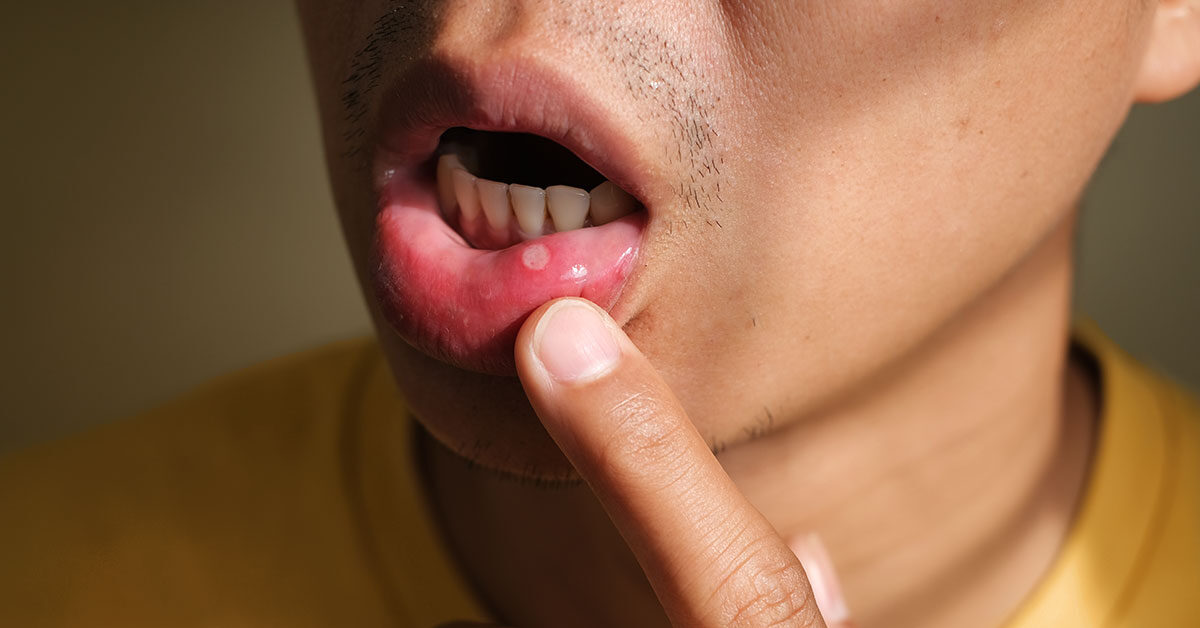| |
| |


|
List of Diseases > Mouth Ulcers

Mouth ulcers, which include canker sores, are small sores that develop within the mouth. There are no definite causes of mouth ulcers, but some injuries, allergies, or sensitivities may trigger them.
Mouth ulcers are painful and typically small lesions that develop in your mouth or at the base of your gums. They can make eating, drinking, and talking uncomfortable.
Types of mouth ulcers include canker sores and the sores caused by hand, foot, and mouth disease.
Mouth ulcers are rarely contagious and usually go away after 1 to 2 weeks, even without treatment. If you get a mouth ulcer that is large, is extremely painful, or lasts for a long time without healing, seek the advice of a doctor or dentist.
There’s no definite cause behind mouth ulcers, but certain risk factors and triggers have been identified.
People assigned female at birth, children, adolescents, and those with a family history of mouth ulcers have a higher risk of developing them.
Triggers include:
- minor mouth injury from dental work, hard brushing, sports injury, or an accidental bite
- dental braces
- toothpaste or mouthwash that contains sodium lauryl sulfate (SLS)
- an allergic response to oral bacteria
- bacterial, viral, or fungal infections in the mouth, such as hand, foot, and mouth disease
- sensitivities to acidic foods and beverages like strawberries, citrus fruits, pineapple, chocolate, and coffee
- certain nutrient deficiencies, especially vitamin B9 (folate), vitamin B12, zinc, and iron
- hormonal changes, such as those that occur during menstruation or pregnancy
- emotional stress
- lack of sleep
Mouth ulcers can also be a sign of conditions that are more serious and require medical treatment, such as:
- celiac disease
- inflammatory bowel disease (IBD), including ulcerative colitis
- diabetes
- HIV
- some autoimmune diseases, including:
- Behçet’s disease, a rare condition that causes inflammation throughout the blood vessels
Symptoms of mouth ulcers may vary depending on their cause, but they typically include:
- painful sores that may be yellow, white, or red
- sores on the inside of the mouth, such as on your tongue or the insides of your cheeks or lips
- areas of redness surrounding the sores
- pain that worsens when you eat, drink, or talk
You may have more than one mouth ulcer at the same time.
Mouth ulcers are not usually contagious unless they’re caused by an infection such as hand, foot, and mouth disease.
Canker sores are the most common type of mouth ulcer, with 20% of people having a canker sore at least once. There are three main types of canker sores:
Minor canker sore
Minor canker sores are small oval or round ulcers measuring under 5 millimeters (mm). They heal within 1 to 2 weeks and don’t cause scars.
According to DermNet New Zealand, 80% of people with canker sores have minor canker sores, making them the most common type.
Major canker sore
Major canker sores are larger and deeper than minor ones. They often measure over 10 mm.
They have irregular edges and can take weeks or months to heal. Major canker sores can result in long-term scarring.
Herpetiform canker sore
Herpetiform canker sores are pinpoint-sized, occur in clusters, and often appear on the tongue. Sometimes the clusters can merge to form one large sore.
Herpetiform canker sores have irregular edges and often heal, without scarring, within 1 month.
They’re called “herpetiform” because they may resemble the sores caused by herpes. Herpetiform canker sores are not otherwise associated with herpes infection.
|
|
All
contents © copyright 2023-24, Dr. R L Khullar,. All rights reserved.
Website Designed and Developed by www.mark-design.net |
|